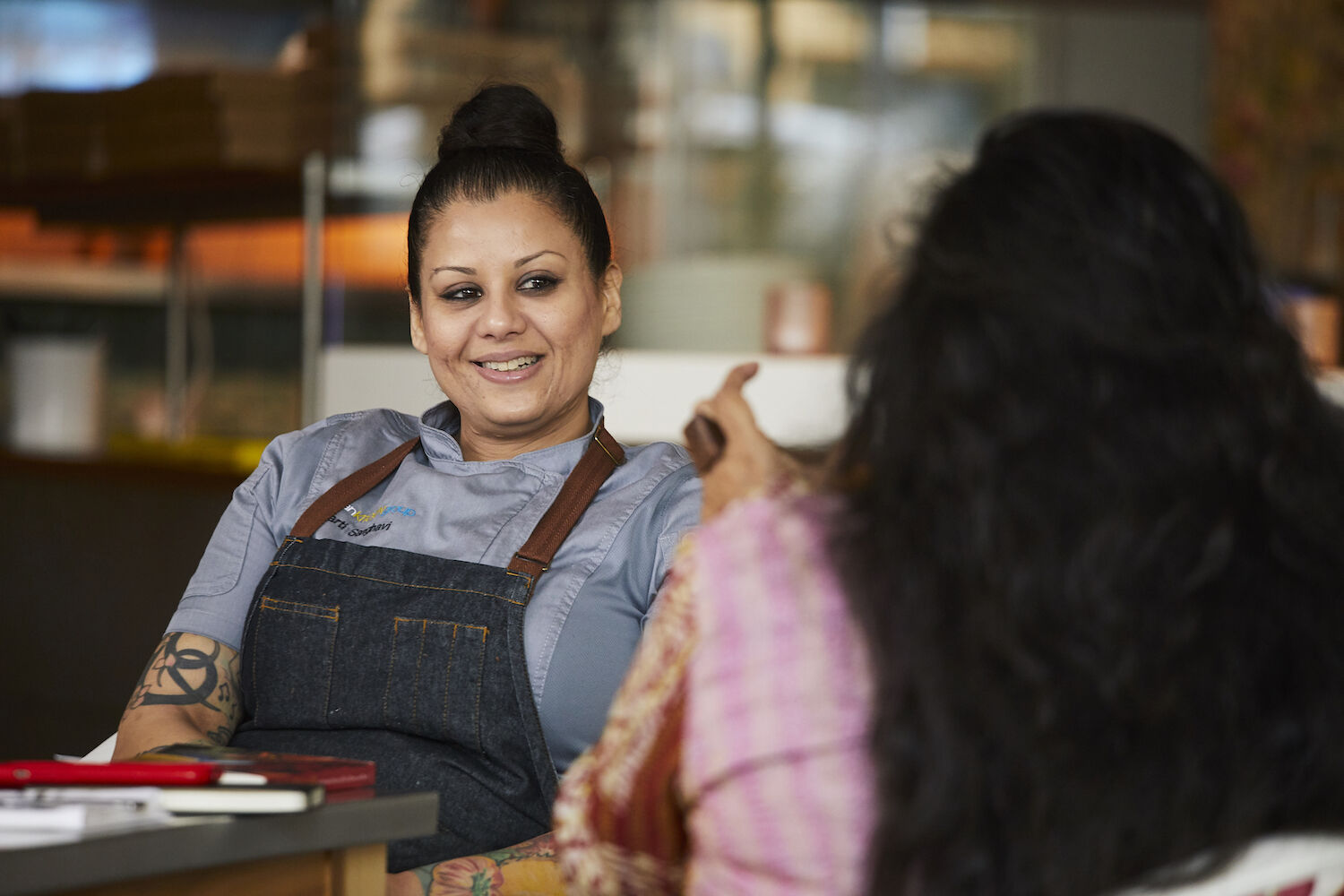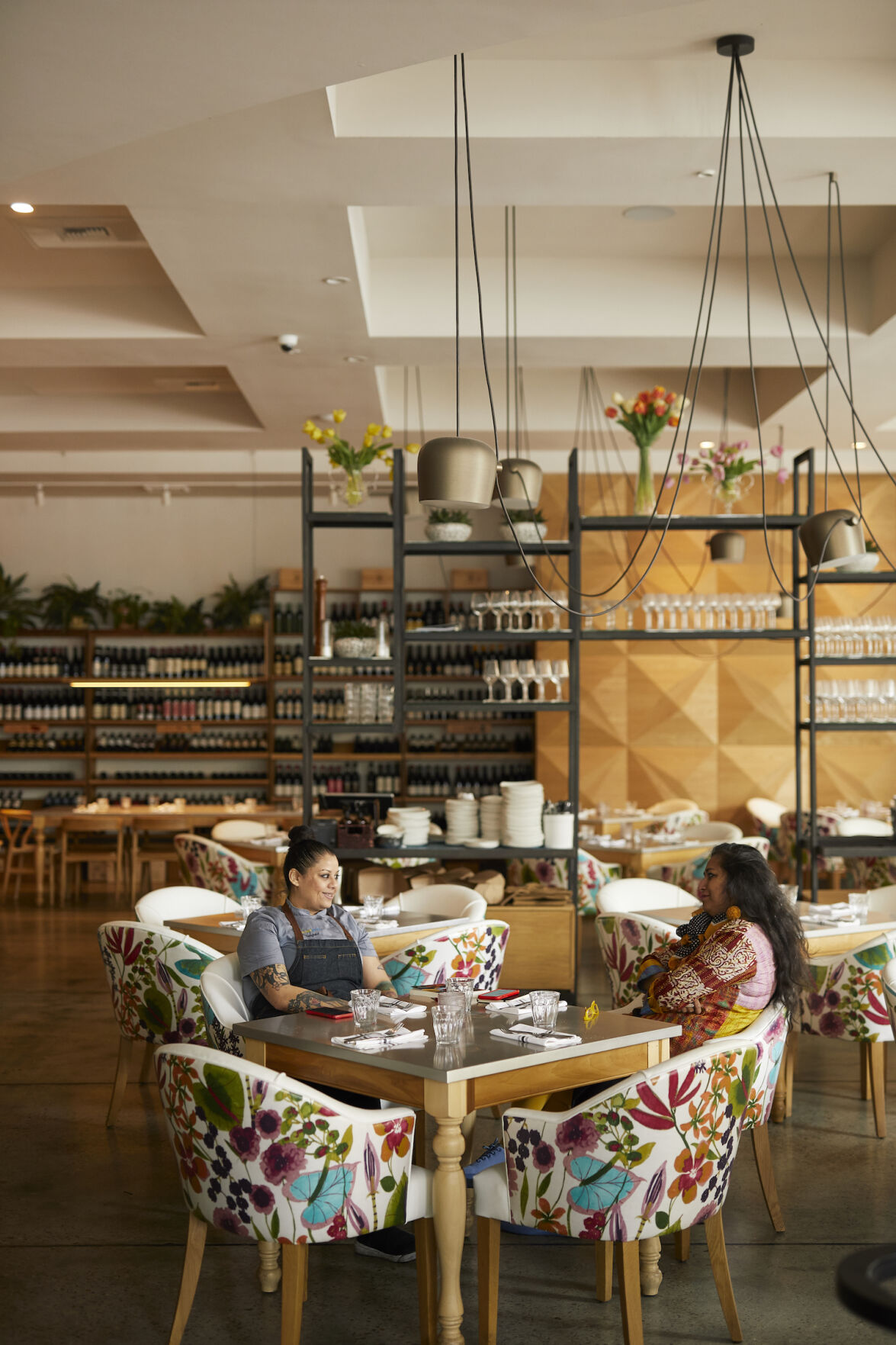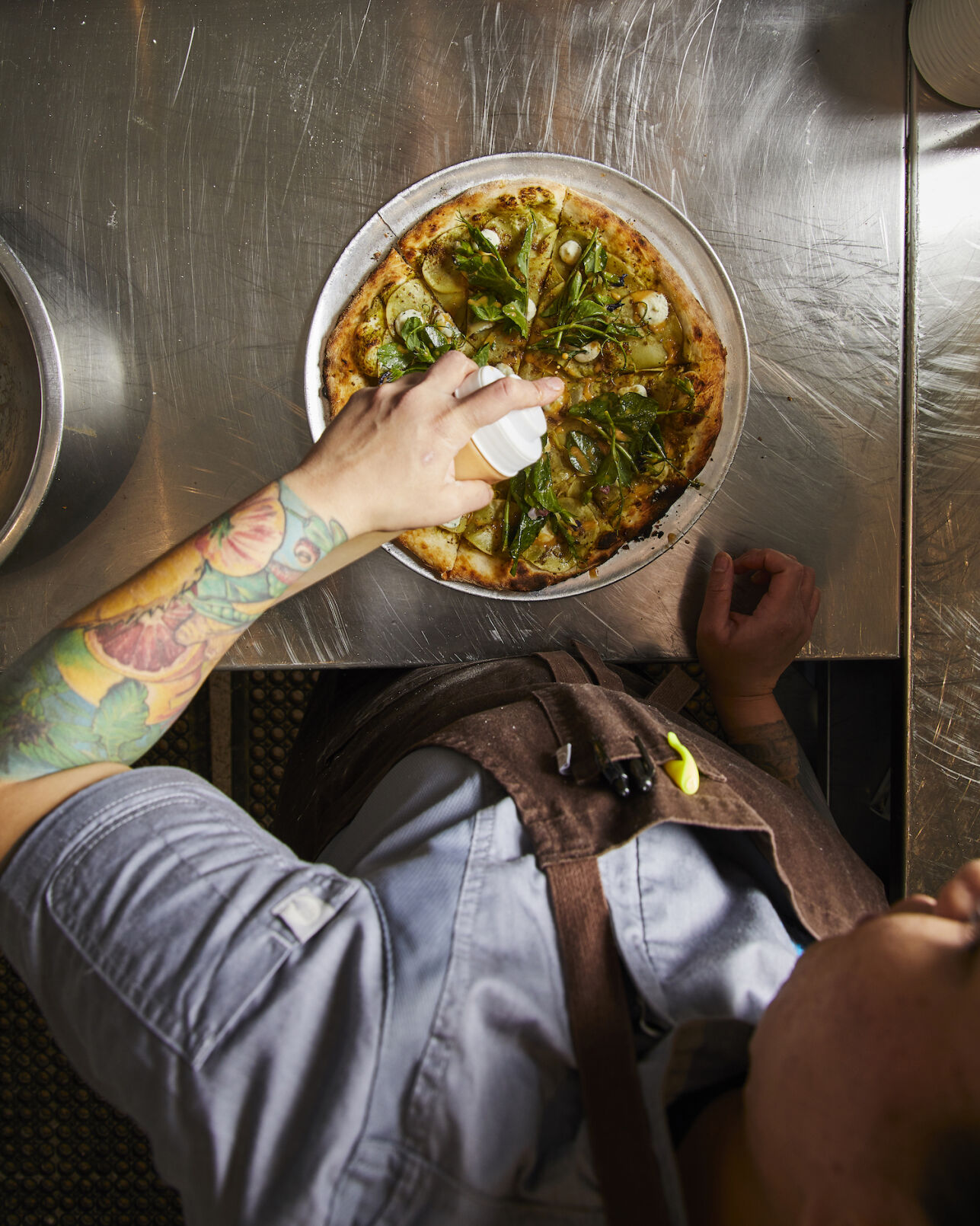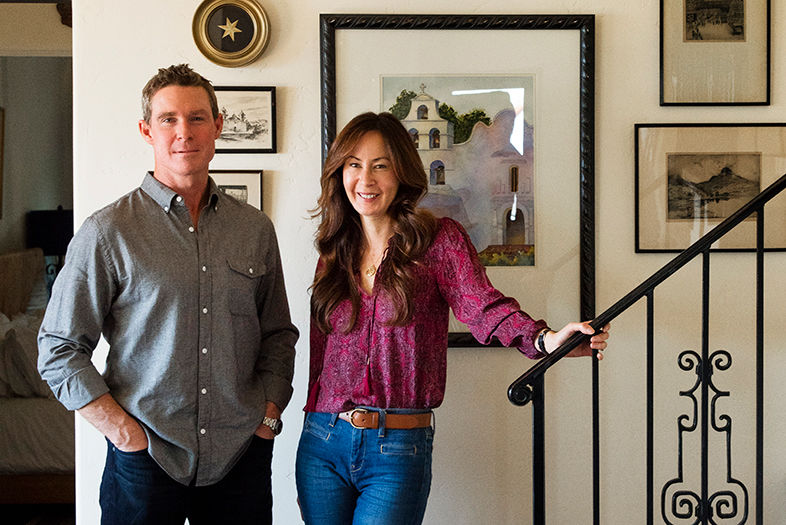
Aarti Sanghavi, chef
Photo Credit: Matt Furman
I wrote a third of Khabaar, my food narrative memoir, during the pandemic. I couldn’t talk about immigrant journeys and the way food travels with us without acknowledging what the forced break in “normal” life meant. During this time in San Diego, we hunkered down, thanked our essential workers, and celebrated our unique chefs like Claudia Sandoval, Claudette Zepeda, and Tara Monsod for transforming California food to reflect the life-changing period. One of them who stood out to me was the celebrated chef Aarti Sanghavi, who returned to San Diego three years ago from LA.
For her, San Diego is home. “Here, I’ve never had to explain my motivation, as a chef or a woman of color, but also, I’m a chef. Period,” she says. “Why highlight gender?”
She rolls her eyes, laughing at this description. I realize she is a contrarian.
I agree but remind her that she’s a South Asian trailblazer. Most South Asian chefs work with regional recipes. With her clean, refreshing takes on California food and her focus on sourcing from responsible foodways, Sanghavi nods to where her parents come from while celebrating where she belongs. Her culinary vision pays homage to her immigrant roots and her California world.
“But your Indianness comes out anyway,” I say, teasing her, and she agrees.
“It’s just a hint,” she admits.
I first encountered Sanghavi through her American Masala line of spices. Each packet of the mouth-wateringly spicy chicken tandoori masala mix has her likeness as a fiery pinup girl, complete with tattoos, dark eyes, and dazzling smile, plus a steely resolve. The image epitomizes Sanghavi: Bold. Unapologetic. American. Desi. A combination. An outlier.
And yet—quiet, soft, someone I relate to. I invite her home, as one would a sister or daughter in India. We sit in my backyard, this being Covid times, and I make sabudana khichdi—a tapioca pearl mid-afternoon dish, filled with chilies, peanuts, potatoes, and warmth.

Chef Aarti Sanghavi (left) and author Madhushree Ghosh connect over shared plates and shared experiences at Cucina Urbana in Bankers Hill.
Photo Credit: Matt Furman
“Just like what my mother makes, comfort food,” she says, smiling.
Two women of color, relating over food, over our desi similarities and differences—her family from Gujarat, mine from Bengal, opposite ends of a country that’s not home for either of us.
“I love my mother, and, yet, I connected with you because you showed me the support I didn’t get from her,” Sanghavi admits freely.
Much like myself, Sanghavi is an anomaly. In South Asian culture where children are expected to be doctors or engineers, Sanghavi received her college degree and then funded her culinary studies without her immigrant family’s support.
“‘Who’d want to be a cook?’” she remembers her father saying.
Her eyes fill with tears as she recounts her family’s reaction. “In fact, my mother has never eaten my ‘Indian’ food,” she says.
“Why?” I ask.
“Because she’s afraid of what her non-desi daughter represents.”
Sanghavi’s mother felt forced to play a traditional homemaker’s role. While an expert cook, she didn’t wish the same for Sanghavi—but, in the complicated landscape of immigrant parent relationships, the concern translated to a dismissiveness of Sanghavi’s career choices.
And yet, Sanghavi has defied patriarchal expectations. She’s her family’s first college graduate. Its first chef. Its first culinary success, with celebrated stints at San Diego’s Hake, Searsucker, Arterra, and Puesto—all to great acclaim. But she hasn’t been “back home” in decades, though we plan on a culinary India trip every time we meet.
“I don’t fit in there. My motabhai [uncle], who is the patriarch, wouldn’t be pleased with me as a tattooed chef,” she says.
To counter that, I ask her about her favorite tattoo. In typical contradictory fashion, she says, “My mother. The tattoo of my mother.”
Her eyes tell more than those words—the story of a child longing for her parents’ acceptance with each success.

In celebration of Women’s History Month, Sanghavi crafted a potato-and-chutney- topped pizza reminiscent of a deconstructed samosa.
Photo Credit: Matt Furman
Last month, we sat down in Cucina Urbana on Bankers Hill, where Sanghavi is the regional executive sous chef for Cucina Restaurants. Excited about the future, she says, “I like working for culinary mentors in San Diego who give me creative freedom and support the vision to make neighborhood restaurants focus on honest cooking and responsibly sourced ingredients.”
I’ve always believed chefs and cooks show love through their food, and Sanghavi is the epitome of that. Sanghavi’s regard for Tracy Borkum, Cucina Restaurants’ owner, tells us what she values—respect, growing beyond the familiar, and celebrating food. In terms of heroes, she fangirls over chef Preeti Mistry for their fearlessness and their innovative spin on California cuisine. “I’d be tongue-tied if I met them in real life,” Sanghavi giggles. “They have changed what it means to be a food activist for me. I learn so much every day.”
This past March, Women’s History Month, the Cucina group offered a unique pizza in its restaurants. Benefitting SD MAKE and lined with shaved Yukon gold potatoes, a simple green-garlic chutney, and whipped ricotta, the thin-crust California pie was garlanded with fresh pea tendrils and masala like a green goddess. A chef Aarti Sanghavi creation, it was—yes—a samosa, deconstructed. I smiled when I bit into the crispy crust: hints of seasoned dough, spiced potatoes, the green coriander chutney hitting with a burst of heat that’s uniquely Californian, with a nod to India. Subtle and yet bold.
PARTNER CONTENT
Much like chef Sanghavi.








